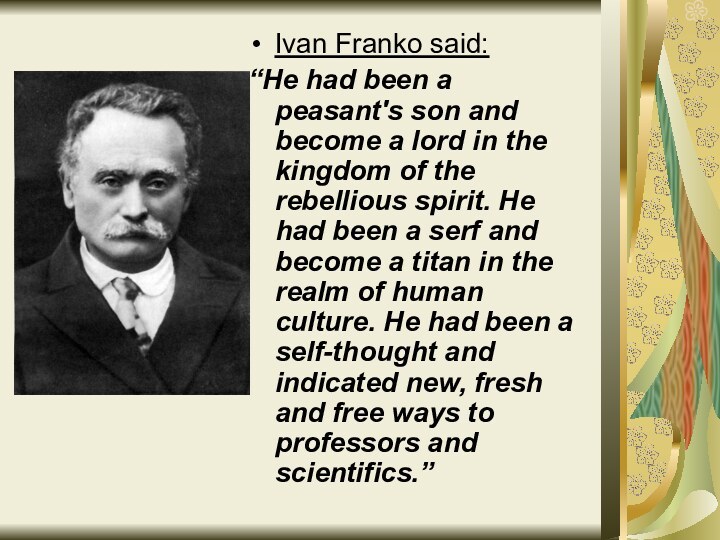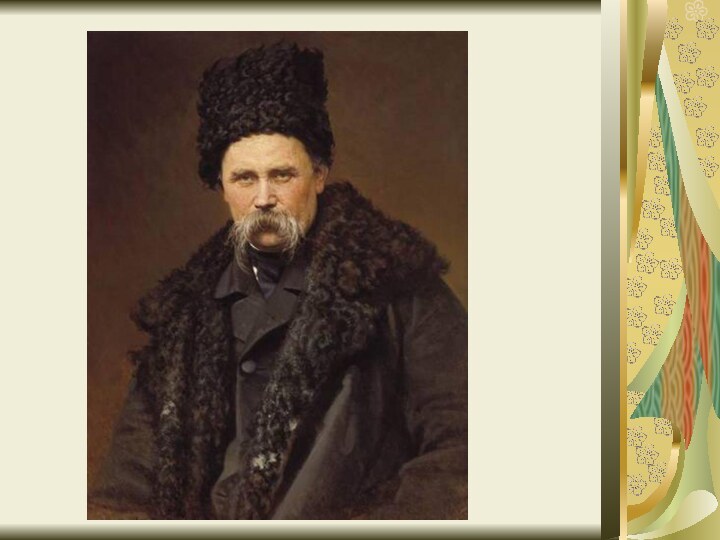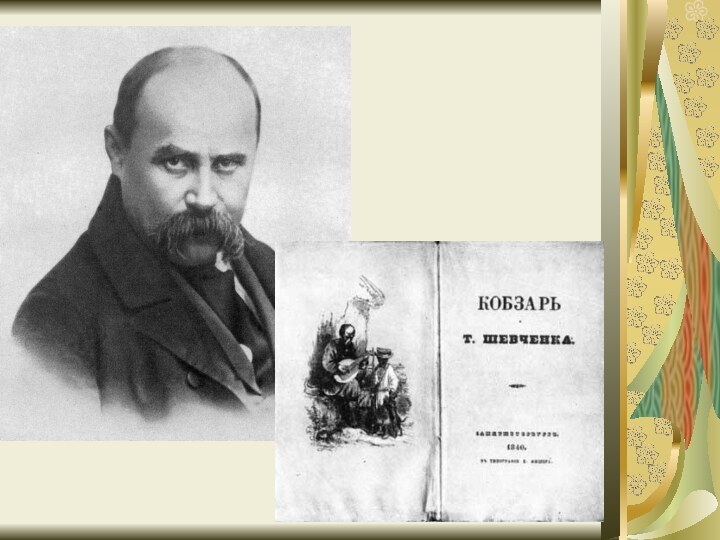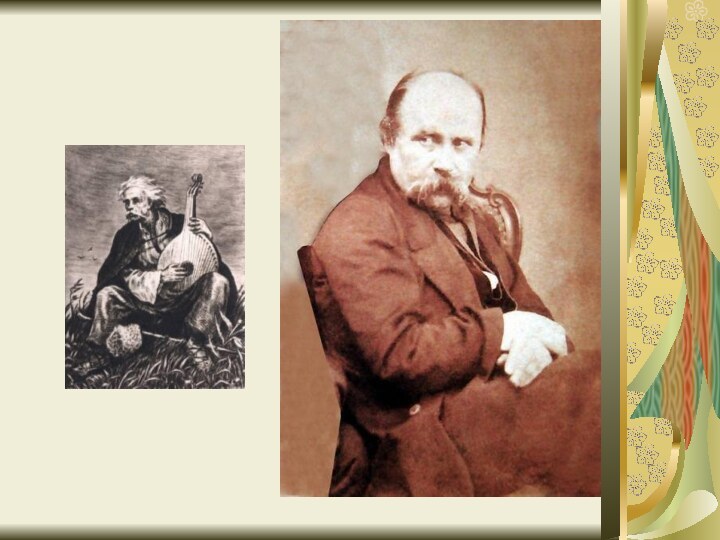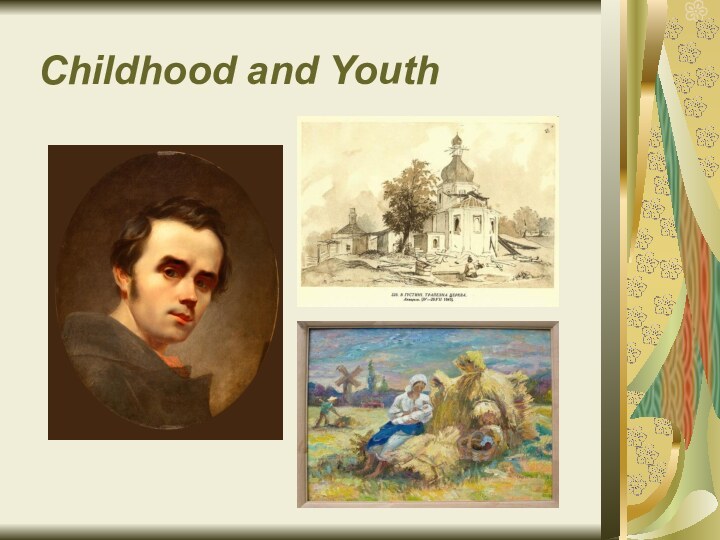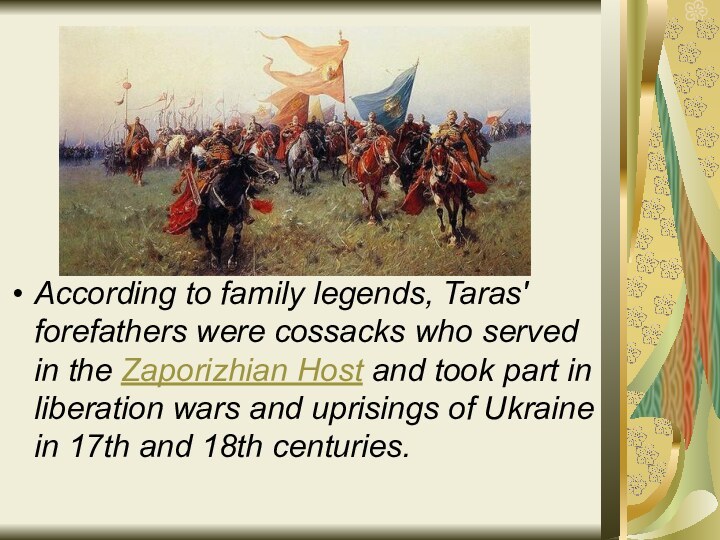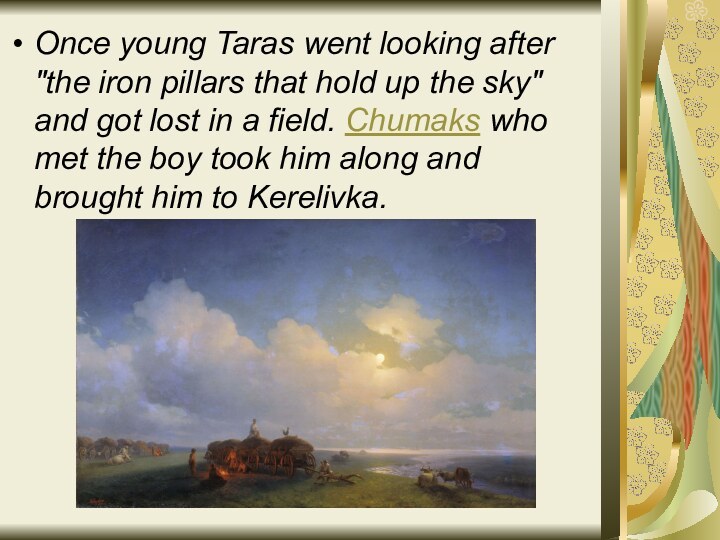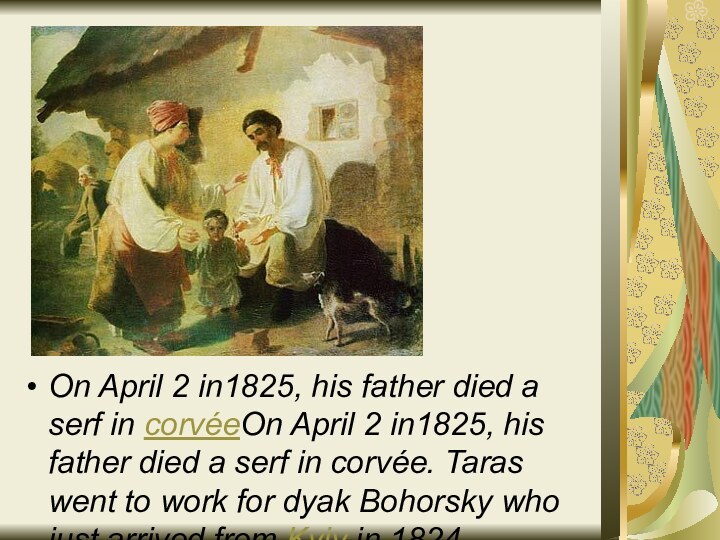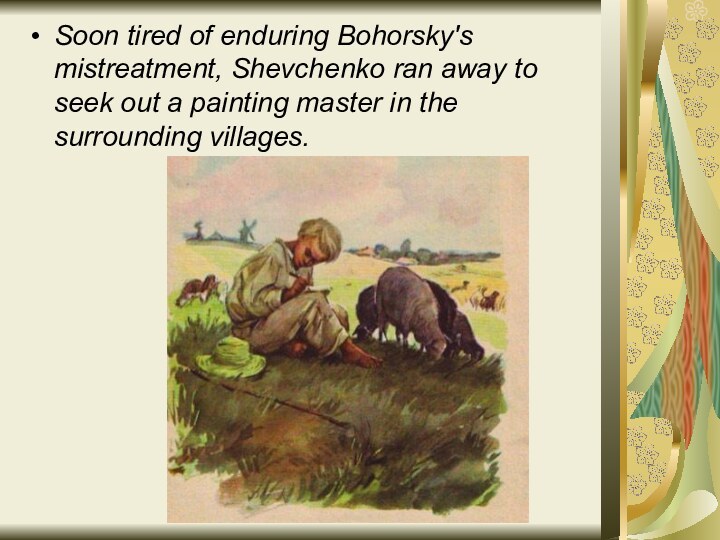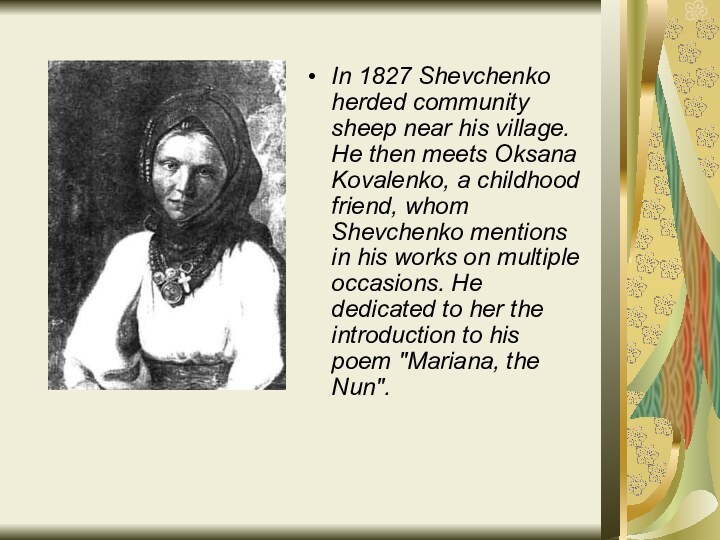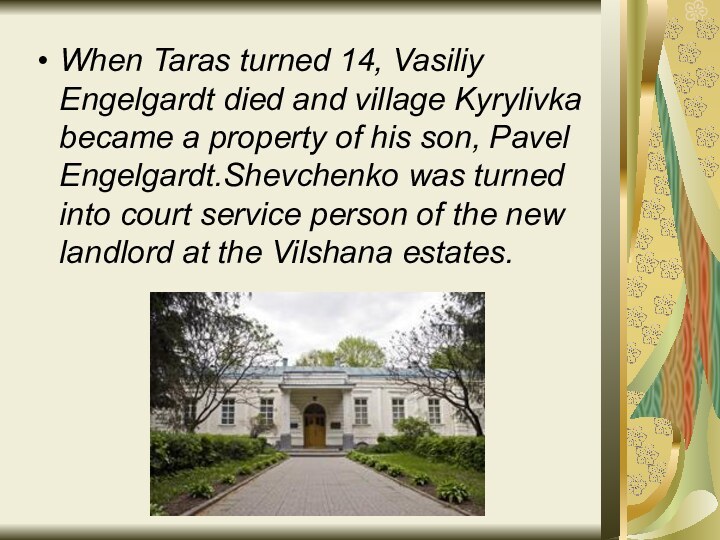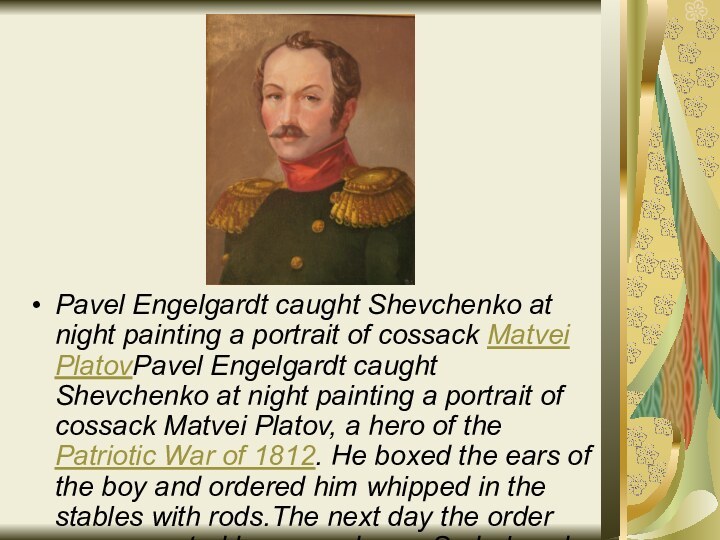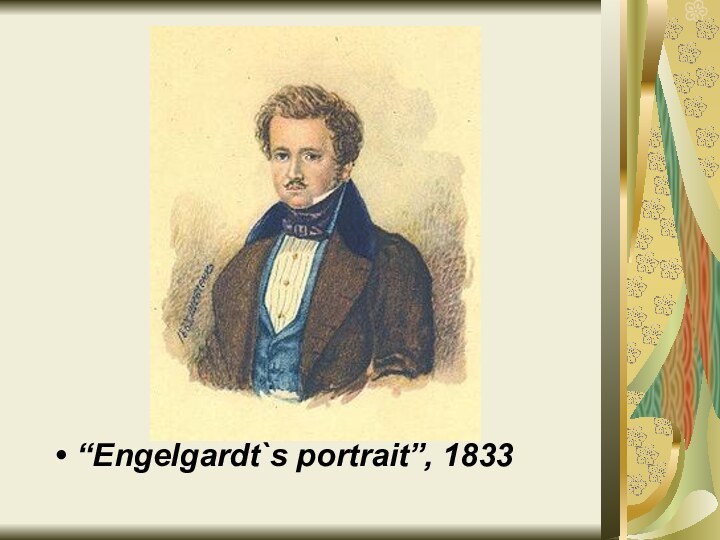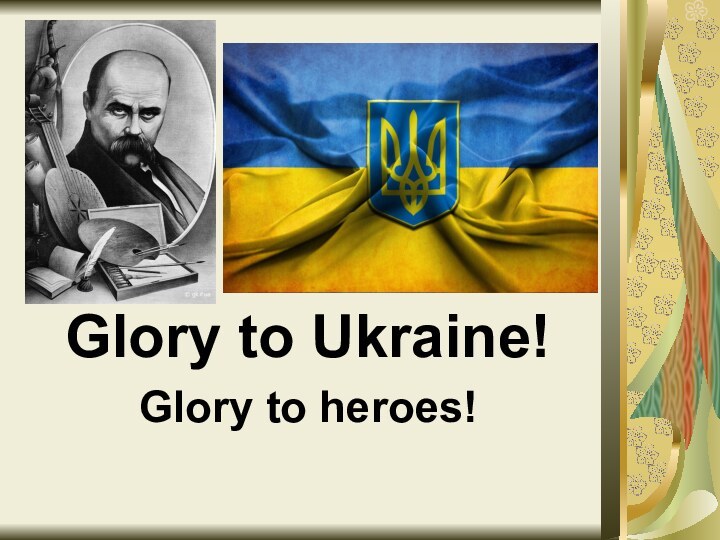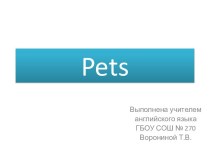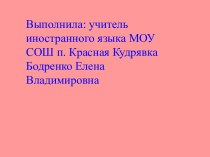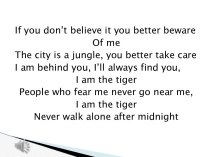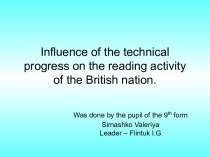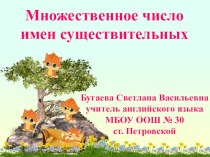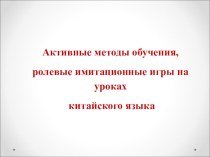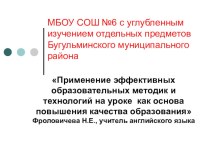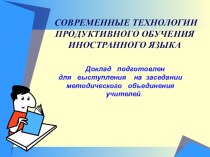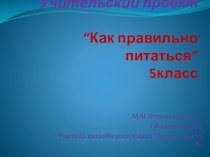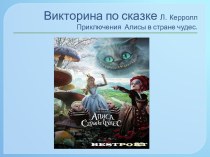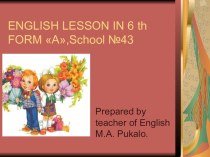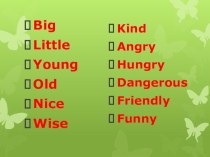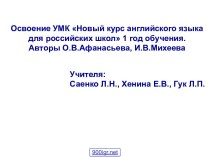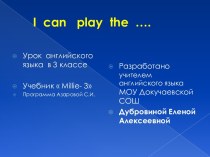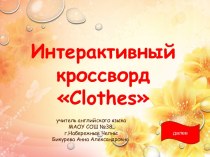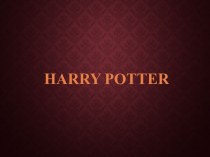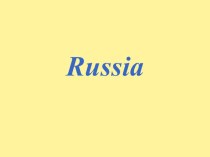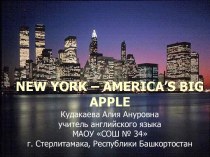- Главная
- Разное
- Бизнес и предпринимательство
- Образование
- Развлечения
- Государство
- Спорт
- Графика
- Культурология
- Еда и кулинария
- Лингвистика
- Религиоведение
- Черчение
- Физкультура
- ИЗО
- Психология
- Социология
- Английский язык
- Астрономия
- Алгебра
- Биология
- География
- Геометрия
- Детские презентации
- Информатика
- История
- Литература
- Маркетинг
- Математика
- Медицина
- Менеджмент
- Музыка
- МХК
- Немецкий язык
- ОБЖ
- Обществознание
- Окружающий мир
- Педагогика
- Русский язык
- Технология
- Физика
- Философия
- Химия
- Шаблоны, картинки для презентаций
- Экология
- Экономика
- Юриспруденция
Что такое findslide.org?
FindSlide.org - это сайт презентаций, докладов, шаблонов в формате PowerPoint.
Обратная связь
Email: Нажмите что бы посмотреть
Презентация на тему Taras Shevchenko
Содержание
- 5. Childhood and Youth
- 6. Taras Shevchenko was born on March 9 in the village of Moryntsi, Zvenigorodka county.
- 7. According to family legends, Taras' forefathers were
- 8. Once young Taras went looking after "the
- 9. On April 2 in1825, his father died a
- 10. Soon tired of enduring Bohorsky's mistreatment, Shevchenko
- 11. In 1827 Shevchenko herded community sheep near
- 12. When Taras turned 14, Vasiliy Engelgardt died
- 13. Pavel Engelgardt caught Shevchenko at night painting
- 14. “Bust of Woman”, 1830
- 15. After moving from Vilno to Saint PetersburgAfter
- 16. “Engelgardt`s portrait”, 1833
- 17. “ The Liberty of Ukrainian nation was
- 18. Скачать презентацию
- 19. Похожие презентации
Childhood and Youth
